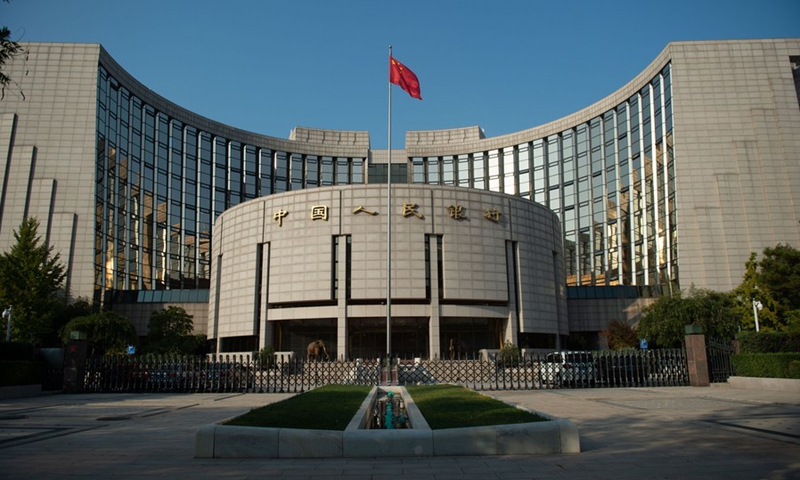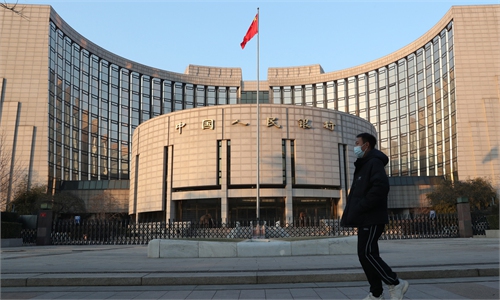China’s LPRs remain unchanged in September, as policymakers need time to gauge stimulus effect: expert

Photo shows an exterior view of the People's Bank of China in Beijing, capital of China. Photo: Xinhua
The loan prime rate (LPR), the market-based benchmark lending rate set by China's central bank, remained unchanged in September as widely expected, considering recent rollout of stimulus measures to prop up the economy.
The one-year LPR stayed at 3.45 percent, unchanged from the previous month, while the five-year LPR, on which lenders base their mortgage rates, also remained unchanged at 4.20 percent.
As a pricing reference rate for commercial lenders, the monthly LPR is based on rates of the central bank's open market operations especially the medium-term lending facility (MLF) rate.
"The MLF rate kept unchanged on Friday, which many believe will mean the LPR this month will remain unchanged too," Wang Qing, chief macroeconomic analyst at Golden Credit Rating International, told the Global Times.
Commercial banks lack the motivation to lower the benchmark rate considering the current narrowing in some banks' net interest margins and the fact that mortgage rates are actually lower than the five-year LPR across a number of Chinese cities, Wang said.
Some state-run lenders previously issued statements addressing mortgage rate reductions, which will take effect on September 25, with banks and borrowers encouraged to negotiate a rate change or arrange a refinancing of existing mortgages, part of the country's ramped-up efforts to bolster the stagnant property sector.
Considering recent moves to stimulate the economy including a cut to the reserve requirement ratio (RRR) for financial institutions on Friday, which will take time to flow through to the real economy, it is expected that policymakers will need more time to gauge the effect of the policies, analysts say.
The RRR cut by 25 basis points, which is forecast to release about 500 billion yuan ($68.5 billion) in long-term funds, sent a positive signal that policies to stabilize growth are continuously taking effect and being implemented, which will effectively lift market confidence.
A potential LPR cut, however, cannot be ruled out before the end of the year, according to Wang.
Given that the country has not resorted to massive monetary stimulus this year to bolster the economy in the post-COVID period, policy options remain broad, Wang said.
"If more efforts are needed to stabilize growth and stabilize the property market in the future, there is still room for the interest rates to be lowered," Wang added.
Global Times


